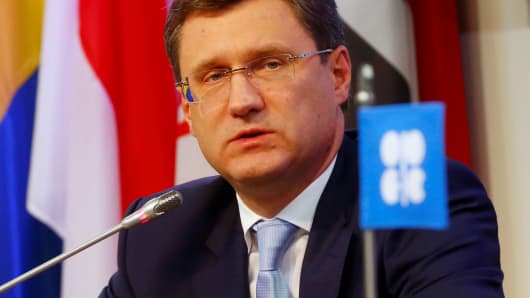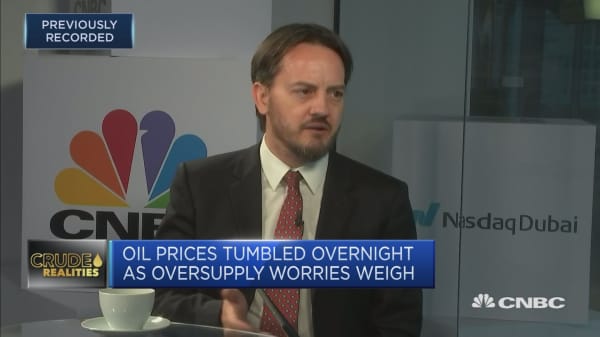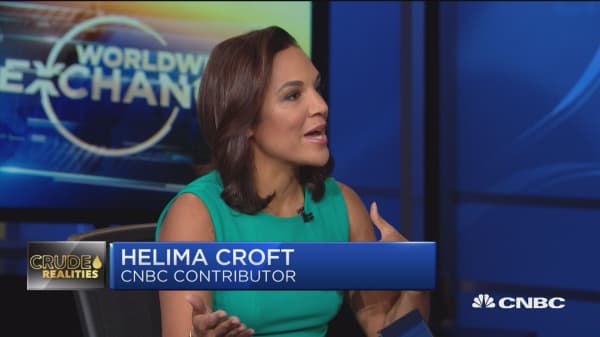The marriage between Russia and OPEC is off.
Russian Energy Minister Alexander Novak
on Friday poured cold water on long-simmering plans to make Moscow's
alliance with OPEC and other oil producers permanent. The group of
roughly two dozen producers has been managing global petroleum supply
for the last two years in order to rebalance the market after a
prolonged and punishing oil price downturn.
The effort succeeded in
shrinking global crude stockpiles and boosting prices to four-year highs
— until the market suddenly crashed again in early October. The group
has agreed to a fresh round of output cuts that begin Jan. 1.
For at least a year, OPEC Secretary General Mohammed Barkindo has discussed "institutionalizing" the arrangement.
That would essentially form a supergroup of oil producers comprised of
the 14-nation OPEC, Russia and nine other oil-exporting nations, which
would be able to more quickly respond to problems in the market.
Energy ministers had been talking up progress
toward the permanent arrangement as recently as their meeting in Vienna
earlier this month.
But on Friday, Novak said
the prospects for that plan now look dim, Reuters reported. He said it
would create too much red tape and expose the non-OPEC members of the
alliance to potential sanctions from the U.S. government.
"There is a consensus
that there will be no such organization. That's because it requires
additional bureaucratic brouhaha in relation to financing, cartel, with
the U.S. side," Novak told reporters, according to Reuters.
The U.S. penalties in
question are spelled out in legislation known as NOPEC, or the No Oil
Producing and Exporting Cartels Act. The bill would authorize the
Justice Department to sue groups like OPEC that are deemed cartels for
price fixing and antitrust violations, stripping countries of sovereign
immunity protections currently built into U.S. law.
The legislation was first
introduced in 2007, during a time of rising crude prices and concerns
that the world's oil reserves would run dry. It was revived earlier this year in both chambers of Congress by bipartisan groups of lawmakers.
The White House has historically opposed the legislation, but President Donald Trump's attacks on OPEC this year have raised concerns that he could back the measure.
However, like past presidents, Trump has shown he is willing to work with OPEC when it suits his needs.
His administration lobbied top OPEC producer Saudi Arabia
to reverse the alliance's policy of capping production in order to
prevent oil prices from spiking as the U.S. prepared to sanction Iran,
OPEC's third-biggest producer. The alliance agreed to hike output in
June, a decision that ultimately contributed to the current oil price
slump.
Russia and Saudi Arabia
were the world's top two oil producers until this year, when U.S. output
surpassed production from both countries.



No comments:
Post a Comment